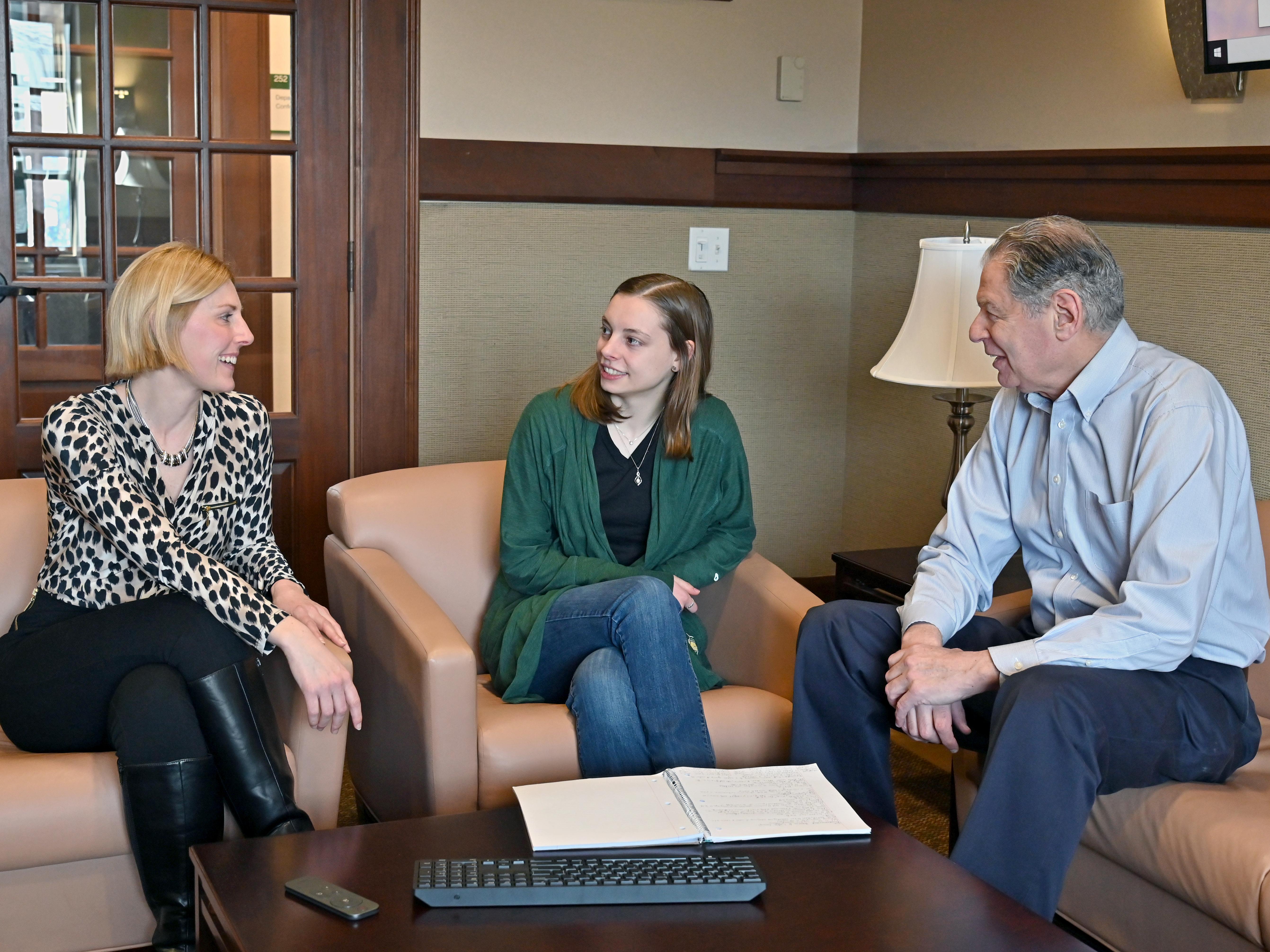Kaija Hoyt (center), a senior human resource management major, is researching ways to mitigate and prevent microaggressions as part of her Quest research and senior honors thesis. Her advisors for the project are (from left) Kristin Sotak, associate dean of the School of Business, and Barry Friedman, professor of management and marketing.
According to research, every day about 1 in 5 Americans will experience some kind of microaggression or act of discrimination, especially against marginalized groups. Kaija Hoyt, a senior human resource management major, is researching ways to mitigate and prevent microaggressions as part of her Quest research and senior honors thesis.
“This thesis reviews workplace microaggressions, their antecedents, and existing mitigation strategies while proposing an actionable solution,” Hoyt wrote in the project abstract. The presentation will be part of School of Business presentations between 10 and 11 a.m. in 221 Rich Hall.
"Microaggressions negatively impact employees, witnesses and organizations, yet current resources are often theoretical and lack practical applications,” Hoyt noted. “To address this gap, this thesis proposes a tangible intervention and assessment method based on a literature review evaluating the strengths and weaknesses of existing approaches.”
In explaining that 1 in 5 figure, researchers from the University of California - San Francisco noted that “there’s nothing small about their impact.” The “micro” part refers not to the size of the offense but to its prevalence in daily life.
Her advisors for the project are Kristin Sotak, associate dean of the School of Business, and Barry Friedman, professor of management and marketing.
Hoyt, who is also the president of the Oswego campus chapter of the Society for Human Resource Management, hopes to test the program’s effectiveness in multiple organizations.
The thesis project runs through the end of the semester, and Hoyt’s Quest presentation will cover the progress to date.
“I first learned about the concept in Kristin’s class,” Hoyt noted. When Hoyt began considering honors thesis projects, it seemed like a field of study that could use more exploration –- and could benefit a variety of audiences.
“I’ve already completed the literature review portion and have started work toward a pilot project,” Hoyt said. “I’m developing the pilot with Pathfinder Bank’s human resources department in April.”
In addition, Hoyt said the university’s Office of Learning Services recently agreed to help pilot the program.
Friedman noted microaggressions are a prevalent problem in many workplaces.
“Its prevalence depends on the culture in a workplace,” Friedman said. “There are some toxic cultures in the workplace, but there are good cultures in some also.”
The Quest projects will help raise awareness on the prevalent nature of the problem and hopefully work toward prevention and solutions.
“It’s an opportunity to make students aware of what microaggressions are, address them when they see it and learn what not to do,” Friedman noted. “It’s an opportunity for us too. We’re always learning things from our students."
“We all can learn together and can grow that way,” Sotak said. “I believe that’s the power of Quest.”
Quest, SUNY Oswego’s celebration of scholarly and creative activities, unfolds across the lakeside campus on Wednesday, April 23, after an April 22 evening kickoff poster session at its Syracuse Campus. For more information, visit oswego.edu/quest.




